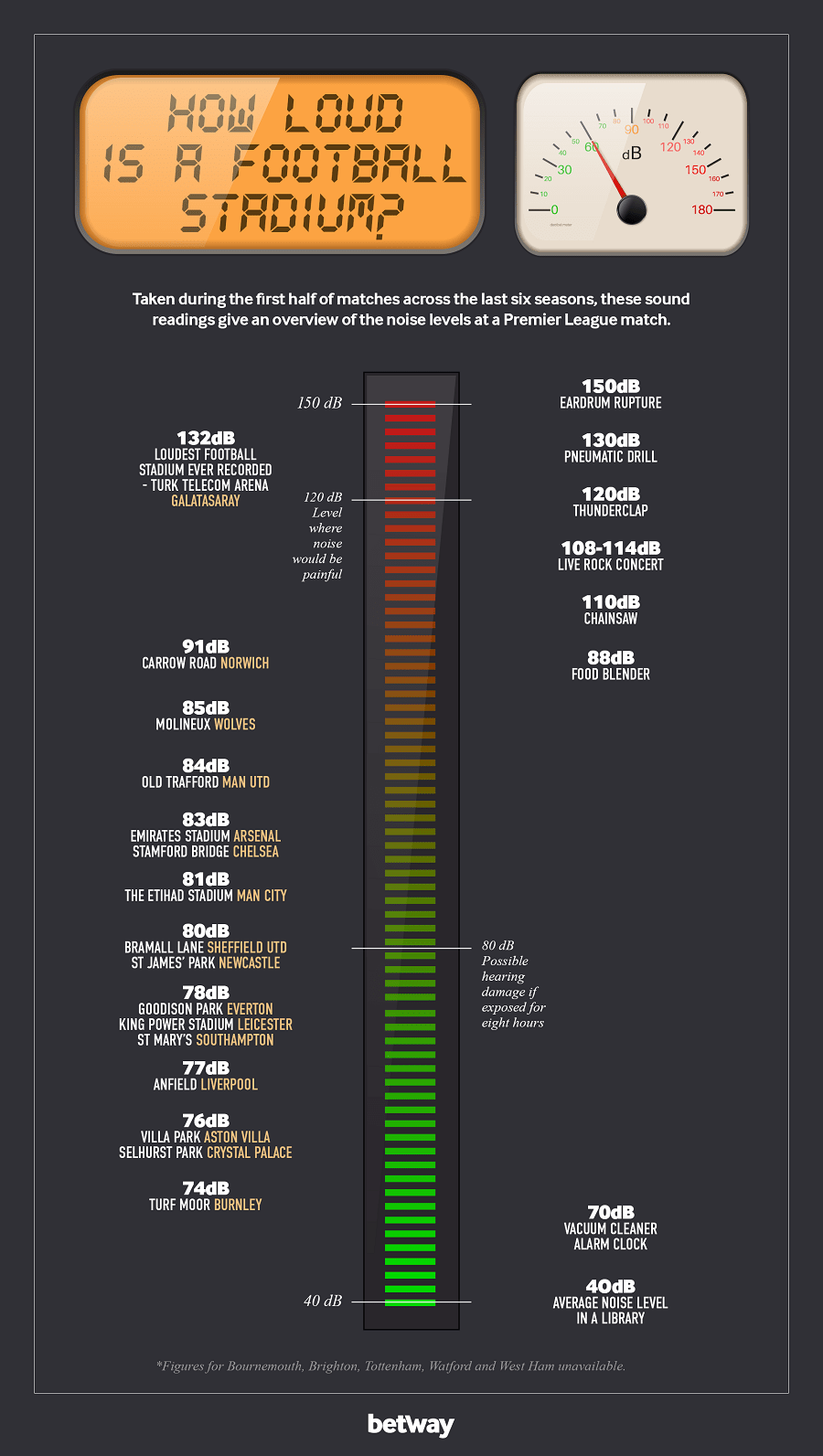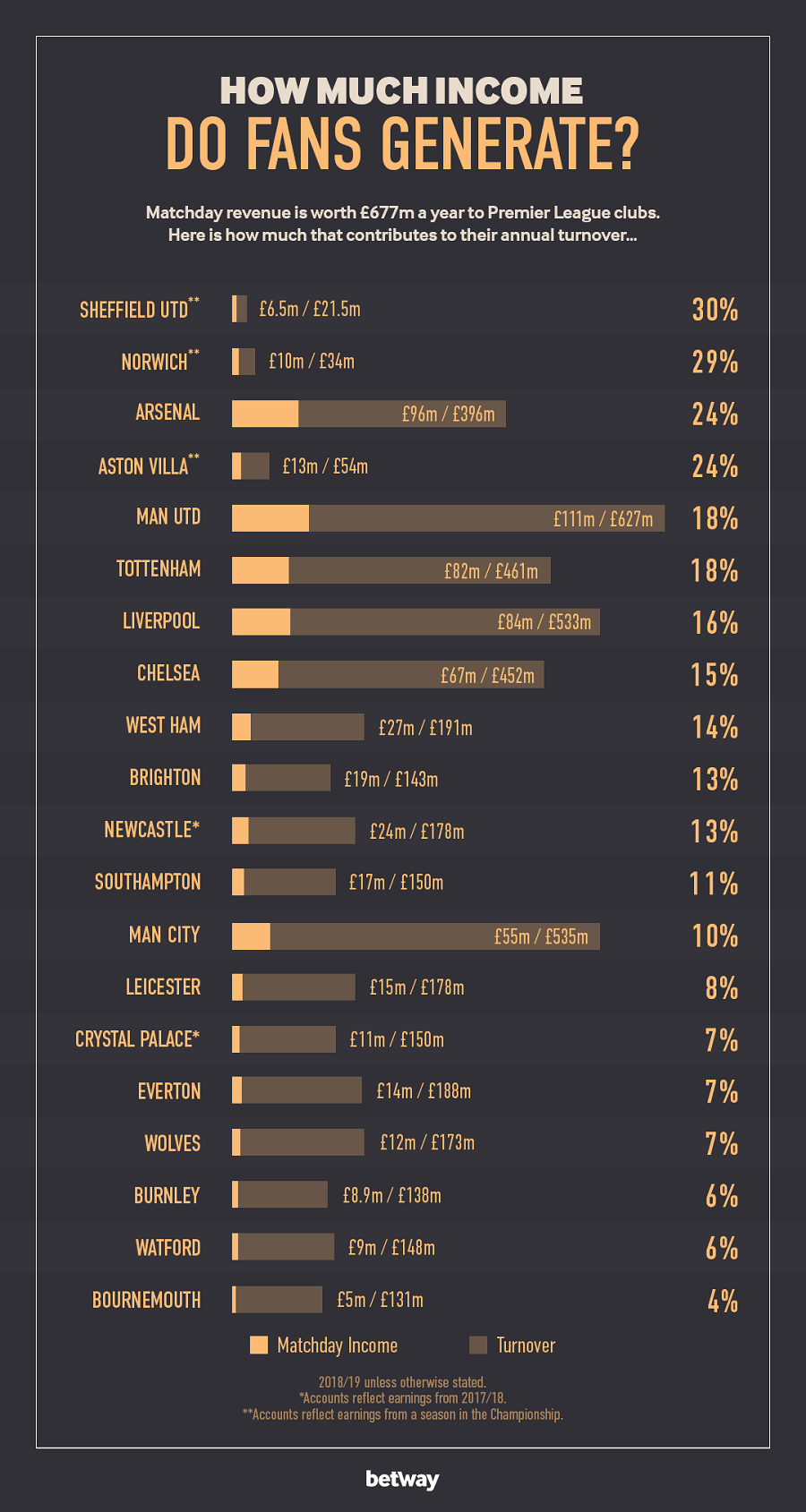The Importance of Football Fans in Stadiums

With mass gatherings being banned for the forseeable future, a former England international and finance expert gave their opinions on the importance of match attending fans on the blog of Betway.
Attending fans are irreplaceable, from the atmosphere they generate at stadiums to the money they spend, before, during and after the games.
Fact: 2018/2019 Average Premier League game attendance was 38,167 with over 14 million fans entering the stadiums.
The total amount spent by fans on matchday in the Premier League last season was over £677m.
Crowd Atmosphere

The importance of fans inside stadiums cannot be underestimated, with the atmosphere for the players being key. The Bundesliga in Germany were the first major league to return to action without fans and the difference is extremely noticeable, the games look like friendlies or training matches.
“To go from playing in a full stadium to playing behind closed doors is eerie, the atmosphere that you’re reliant on isn’t there and you can’t feed off the energy of the crowd.” says former West Ham captain Alvin Martin.
Martin was part of the West Ham team that beat Arsenal in the 1980 FA Cup final and their subsequent European Cup Winners’ Cup campaign the following season.
The defender earned 17 caps for England and is fifth on West Ham’s list of all-time appearance makers after playing 596 times for the club over an 18-year period.
“At West Ham, the fans created an atmosphere that was up there with the very, very best,” he says. “They are the ones that you play for. When they turn up at a game, they set the stage for you.
“They enhance the feeling of the game and the worth of it. You know that if you’re playing in front of 30 or 40,000 people then you’re doing something important.”
Financial Impact

The £677m generated by matchday income in the Premier League in 2018/19 works out at 13 per cent of the overall turnover for all 20 clubs. This revenue generated by the fans is not something that can dismissed easy for many teams.
Football finance expert Kieran Maguire states that”
“If you talk to anybody – it doesn’t matter the nature of their business – if you’re getting these regular streams of revenue, then you would be foolhardy to throw any of those away, £5m is still £5m. Over the course of a season for Bournemouth, the money from a matchday will pay for the wages of two players.”
Financially the bigger teams might get an increased revenue from fans in stadiums but they will also have other revenue streams. Smaller teams often don’t have many different streams meaning that revenue generated by fans is of higher importance. For some teams the revenue makes up for a higher percentage of income.
For the 2018/19 season, Manchester United made £111m from matchday income – 18 per cent of their £627m turnover.
Bournemouth, on the other hand, had a turnover of £131m, of which only £5m came from match days. But even for the Cherries, that sum is invaluable.
“You can’t keep on writing a cheque for £5m a month, even if you have got a decent amount of money in the bank to begin with. But Bournemouth lost £27m last season, so you add the loss of matchday income to that and it can only make the situation worse.”
It is essential, then, that in the absence of match-going fans, clubs attempt to come up with alternative revenue streams to cover the shortfall.
There are many reasons why having football fans in stadiums is important for the team, club, local area and the actual fans. Experts think that crowds of 30/40,000 people are still a year away but other leagues hope to have fans back in stadiums before the end of the year.